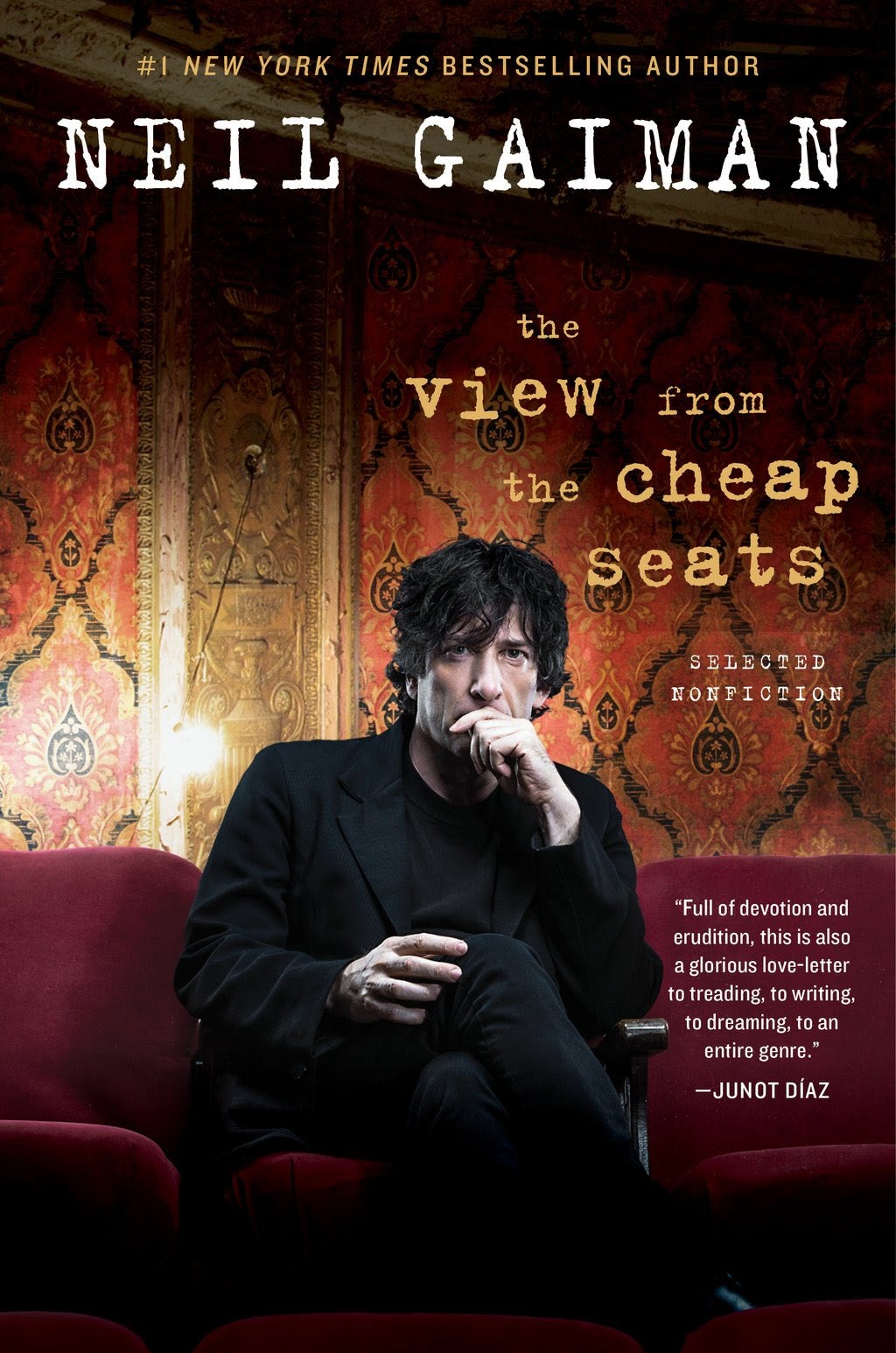The View from the Cheap Seats by Neil Gaiman - book review: His non-fiction work proves proves good journalism is like riding a bike; you never forget it
Neil Gaiman may have turned his back on journalism a long time ago in favour of 'making stuff up' but as this non-fiction work proves, he still has a knack for telling beautiful truthful human stories

Your support helps us to tell the story
From reproductive rights to climate change to Big Tech, The Independent is on the ground when the story is developing. Whether it's investigating the financials of Elon Musk's pro-Trump PAC or producing our latest documentary, 'The A Word', which shines a light on the American women fighting for reproductive rights, we know how important it is to parse out the facts from the messaging.
At such a critical moment in US history, we need reporters on the ground. Your donation allows us to keep sending journalists to speak to both sides of the story.
The Independent is trusted by Americans across the entire political spectrum. And unlike many other quality news outlets, we choose not to lock Americans out of our reporting and analysis with paywalls. We believe quality journalism should be available to everyone, paid for by those who can afford it.
Your support makes all the difference.Headline, hardback, £20
Publication Date: Tuesday May 31 2016
Neil Gaiman is most famous for his fantastical novels, many of which have been or are in the process of being adapted into TV series and movies. If you know him at all it will be through his epic urban fantasy American Gods, or his creepy children’s book Coraline, or the haunting Ocean At The End Of The Lane. But while he has plied his trade with gods, monsters and eerie horrors, Gaiman is also no slouch when it comes to non-fiction – indeed, he started his writing career as a journalist – and his latest book is a huge collection of his thoughts on the things that inspire, interest and inflame him, from writing to libraries to music to comics.
In his introduction Gaiman says he “backed awkwardly away from journalism because I wanted the freedom to make things up”. He’s worked for publications as diverse as the now-defunct Today newspaper to Penthouse magazine, but everything in The View From The Cheap Seats is from after his journalism career, when he began to find fame as the writer of the Sandman comic book which drew attention to him and paved the way for novels such as Stardust – filmed with Robert De Niro and Clare Danes – and Good Omens, his collaboration with Terry Pratchett.
The book is divided into sections; the text of speeches he has given, for example on accepting the prestigious Newberry Medal for The Graveyard Book, and his 2013 Reading Agency lecture, which was a call to arms to preserve our threatened libraries.
There are also appreciations of people he – and we – have known, and lost, from Douglas Adams, who Gaiman interviewed for Penthouse in 1983, to his lifelong friend Pratchett, who died last year.
Gaiman talks in enthusiastic terms of other authors, those who inspired and informed him from an early age, the Ray Bradburys and Samuel R Delanys, titans of the golden age of science fiction. Perhaps one of the most powerful pieces in the book comes right at the end, an emotional article laced with quiet fury detailing Gaiman’s time at the Azraq refugee camp in Jordan in May 2014, watching and speaking to those displaced and disenfranchised by war. It’s an astonishing piece that proves good journalism is like riding a bike; you never forget it. In more than 500 pages of non-fiction, Neil Gaiman shows that while we might come to his writing for gods and monsters, actually all human life is here.
Join our commenting forum
Join thought-provoking conversations, follow other Independent readers and see their replies
Comments